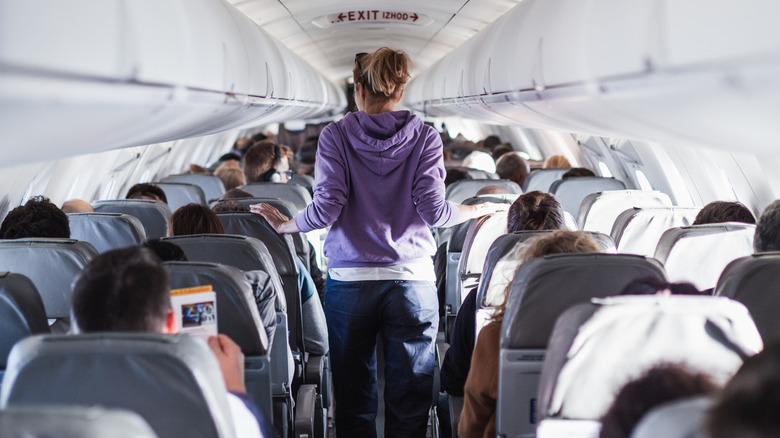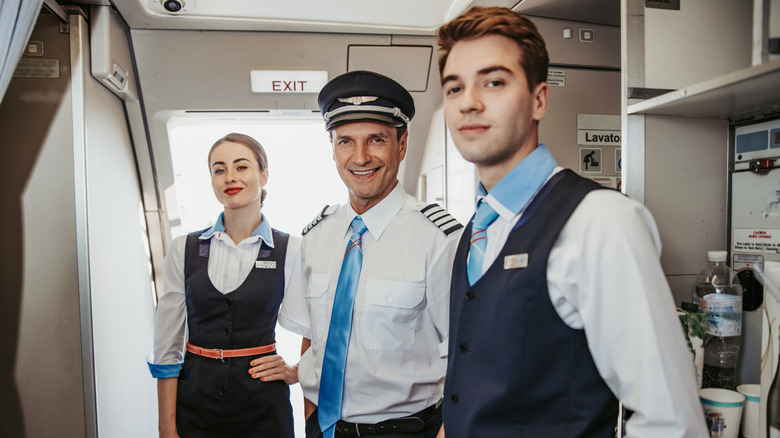
If you've ever boarded a plane and wondered what that weird smell is, then you're not alone. Airplane cabins are confined spaces, and fumes and other aromas can linger within them. For the most part, these
are just the usual smells associated with aircraft and airports. But sometimes — not on every flight — there is a peculiar smell that welcomes you aboard your flight, often described as smelling of burning fuel. This smell can be directly traced to an aircraft's systems. More specifically, a device called the Auxiliary Power Unit (APU).
The APU is a hole at the rear of the aircraft that houses an engine whose main purposes are to supply power to run the air-con and other electrical requirements before the engines are running. It also supplies the hot, compressed air required to start the engines. This air can pass through the aircraft's air system and potentially cause a fuel-like smell. Additionally, APUs draw air from outside of the aircraft, and this can include fumes from the initial APU start-up and any fuel fumes that are lingering outside of the aircraft.
Read more: 10 Airplanes That Managed To Fly With Staggeringly Low Horsepower
Nosing About Aircraft Cabin Smells

The smell that greets you when boarding an aircraft is -- in all likelihood -- harmless. Nevertheless, that isn't to say that fumes on aircraft aren't a concern. As flagged by the International Federation of Air Line Pilots' Associations (IFALPA), there are concerns that serious fume incidents can result in the impairment of crew members. IFALPA also noted concern about the long-term effects of such exposure. This is why airlines are advised to train cabin crew to identify the source and types of common fumes that can ingress an airplane cabin. This training involves being able to identify smells arising from both onboard the plane and from external sources. This includes identifying fumes like de-icing fluid, engine or APU oil, exhaust fumes, and fumes associated with recirculation fan failures, to name a few. It's also advised that they're able to identify external odor sources like cleaning products, galleys, and even smells that are introduced from carry-on baggage.
All of this is to say that when you enter an airplane cabin and notice a weird smell, the flight crew will know if something's wrong long before you. The crew should be adequately trained to recognize the normal day-to-day odors of aviation are, and they know what to do in the case of a Cabin Air Quality Event, when an odorous smell strays into the cabin. In most of these cases, apart from exposure to a potentially nasty smell, there is a rarely a serious impact on crew or passengers.
Want the latest in tech and auto trends? Subscribe to our free newsletter for the latest headlines, expert guides, and how-to tips, one email at a time.
Read the original article on SlashGear.










